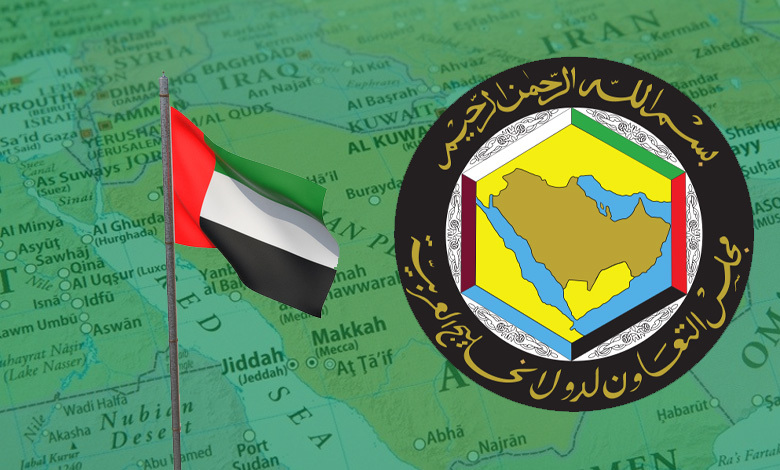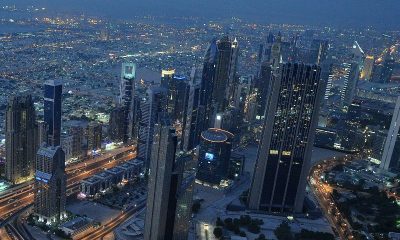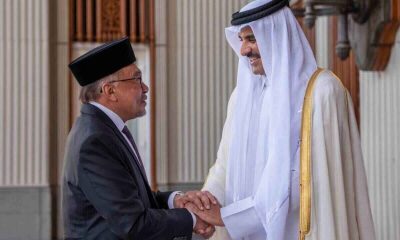When we turn to the Arabian Peninsula or talk about the GCC, it seems incomplete without the UAE. UAE – A shining gem on the Arabian Peninsula, it has emerged as the powerhouse of the GCC, and by harnessing a positive approach to regional stability and sustainable goals for the GCC region, the UAE has become the focal point of the region. Its relations with other countries, and geopolitical strategies while promoting tourism and culture, account for its unique position in the GCC and the world.
UAE has been actively involved in partnership with GCC. Though GCC and UAE have some or many differences but if the GCC does not handle differences carefully, they could lead to misunderstandings or a cold war or perhaps a war planned by the Big Eagles….!
Welcome to our blog post on UAE-GCC relations as emerging partners in a changing geopolitical landscape, where we discuss the key factors that promote positive synergy between these dynamic countries. And how the UAE is working smoothly by implementing changes in its IR for the development and progressive growth of the GCC.
UAE-GCC Relations, A Brotherhood of Nations!
The United Arab Emirates (UAE) and the Gulf Cooperation Council (GCC) have a long-standing relationship that has been built on strong historical, cultural, and economic ties. It is born out of the need for regional unity and security. The UAE’s relationship with GCC has worked together towards achieving mutual goals and promoting regional stability. They have a deep understanding of tradition and values. This commonality allows for smoother communication and stronger bonds between them.
Economically speaking, the important role played by oil in shaping UAE-GCC relations cannot be ignored. All six GCC member countries are major oil producers with huge reserves. Plus they have a big tourism sector to share. Recent visa policies where the UAE is leading the entire GCC in promoting the travel sector and enhancing the role of the UAE in the GCC.
If we recall the Al-Ula declaration to health corporations in COVID, I can summarize some notable recent relations and alliances with the growing role of the UAE in the GCC:
- Al-Ula Declaration: It was the turning point for GCC where a new chapter begins for peace and sustainable growth of the region. UAE played a strong role in this diplomatic breakout.
- GCC Economic Agreement: Increasing the GCC countries’ economic integration has been supported by the UAE. The GCC’s economic policies, trade, and investment have all been further unified through recent talks and agreements.
- Security and Defence in GCC: The UAE has actively taken part in several GCC defense and security projects, such as cooperative military drills and initiatives to combat shared security risks in the region. The GCC countries’ collective security is strengthened by these initiatives.
- Abu Dhabi Declarations: The UAE and other GCC countries have collaborated to pave the way for security and stability through the Abu Dhabi Declaration.
- Saudi and UAE’s Vision 2030: It was not exclusive but notable United Arab Emirates and Saudi Arabia delineate collaboration on diverse economic and strategic endeavors, to fortify bilateral relations and bolster regional progress.
- Environmental Initiatives and Promoting Tourism: Notably, the UAE is dedicated to sustainable development and green growth and the country is taking the lead for the tourism goals of GCC.
- Joining hands for Humanity: The COVID-19 pandemic brought attention to how crucial collaboration in healthcare is. About healthcare and vaccine distribution, the UAE and other GCC nations have held talks and agreements. For humanity, the UAE has taken steps forward and breaking barriers, the country is sending humanitarian aid to countries in need. Some of the recent examples are humanitarian aid to Gaza amid the Israel-Hamas war, earlier at the time of the Libiya’s Flood.
Why is UAE Important to GCC Countries?
The United Arab Emirates (UAE) is a key player in the Gulf Cooperation Council (GCC) countries. Over the years, the GCC has grown to become an important regional body that plays a crucial role in shaping the political and economic landscape of not only the Middle East but also on a global scale. Many GCC nations have positive policies towards the UAE and at the same time they want to compete with the UAE.
But there are several strong reasons why the United Arab Emirates (UAE) is one of the most important countries in the Gulf Cooperation Council (GCC):
1. Powerhouse of the economy: The economy of the UAE is strong and diverse, and it is a major force behind economic growth in the GCC. It is an important trading partner for other EU member states, which makes their economies more dependent on each other.
2. Geographical Location: The UAE is strategically located at the point where the Middle East, Asia, and Africa meet. Because it has major ports and airports and other well-developed infrastructure, it is a regional transportation and logistics hub.
3. High level of Diplomacy: UAE is known for being very good at diplomatic skills. As an example, the Al-Ula declaration that ended the blockade on Qatar was a big step towards resolving regional conflicts.
Under the leadership of President Sheikh Mohammed, diplomacy has gained a good position on the global map, and world leaders are looking to build good relations with a country that seeks stability, peace, and development.
4. New ideas and progress: The UAE has been at the forefront of new ideas, embracing technology and working to make its economy more diverse. This has helped the GCC countries grow and has pushed them to stay competitive and come up with new ideas. The UAE’s steps towards diversifying the economy, supporting green energy, and solar energy, and leading the GCC as a strong player for sustainability are milestones that have made it a leader.
5. The Arts and Tourism: People worldwide come to the UAE because it is dedicated to tourism and has a thriving cultural scene. Other GCC members have put money into their tourism industries because of it. It has set a standard for tourism and hospitality in the area. UAE recently led the ‘Schengen-style’ visa policy to attract tourists to GCC countries.
One excellent example is the tourism industry. The UAE and its GCC rivals are competing with one another to draw tourists from abroad. Every nation highlights its attractions, such as the famous skyscrapers of Dubai, the immaculate natural settings of Oman, and the historical treasures of Saudi Arabia. The Gulf region is becoming an increasingly well-liked travel destination worldwide as a result of this friendly competition led by the UAE.
6. Tolerance for other cultures: UAE always supports multiculturalism, which is based on acceptance and tolerance, and has become a model for the rest of the region. It encourages people of all religions and cultures to accept each other and live together peacefully.
The UAE has been implementing the seeds of its ideology of respecting multiculturalism in schools from a very early age. UAE schools have school curriculums that promote Emirati culture. This should be an example for the GCC countries which are conservative and still discouraging their children from accepting change and joining hands with the development trends.
7. Partnerships and alliances: The UAE has formed strategic alliances and partnerships with other GCC countries. This strengthens its role as a hub for cooperation and development in the region. But at the same time, the UAE knows that for stability in the region they need world acceptance and strong foreign relations, and the UAE is pursuing this. The UAE of the 21st century is joining hands with Saudi. The top four trading partners are China, India, the US and Japan.
8. Security and Stability: The UAE’s dedication to regional safety and stability, along with its investments in defense and security projects, help the GCC countries feel safer as a whole.
9. Sustainable growth and green growth: The UAE’s push for renewable energy and eco-friendly projects shows its dedication to green growth and sustainability. These examples can serve as models for the rest of the GCC as they move towards more sustainable and eco-friendly practices.
So, the UAE is important in the GCC because of its strong economy, diplomatic skills, culture of innovation, efforts to promote peace, and strategic alliances. In the Gulf region, it stands for progress, cooperation, and stability, and it helps the GCC countries grow and become more prosperous. So working together will be beneficial for the region for many ways.
GCC And UAE Ready To Deal With Their Internal Differences And Work Together On :
If the GCC does not handle differences carefully, they could lead to misunderstandings or a cold war or perhaps a war planned by the Big Eagles….
There are strong ties between the UAE and the GCC because they share values, interests, and a history. But, just like in any other relationship, some problems need to be fixed to keep these ties strong. But all the GCC nations are showing positive attitude by joining hands on global stages like Cairo Peace summit, ASEAN-GCC summit, and upcoming COP28 !
Though they will deal with different foreign policies and priorities is challenge. But Gulf countries are careful about the development of their region and they can achieve it only by working together as the changing geopolitics always tries to use West Asia for their own needs!
Future Outlook for UAE As an Emerging Partner of GCC:
West Asia has always been the target and most volatile region as it connects East and West for tourism, trade and development. The UAE and GCC partnership can be a ray of hope for the stability of the region.
By working together on diplomacy, defense, economy and cultural exchanges, the UAE and the GCC states are strengthening their commitment to a stable and secure Middle East and West Asia. With common goals and mutual cooperation, this partnership not only strengthens the region but also paves the way for positive development in this strategically important part of the world.
Read More: Qatar and UAE Building Closer Ties in a Shifting Political Landscape






















